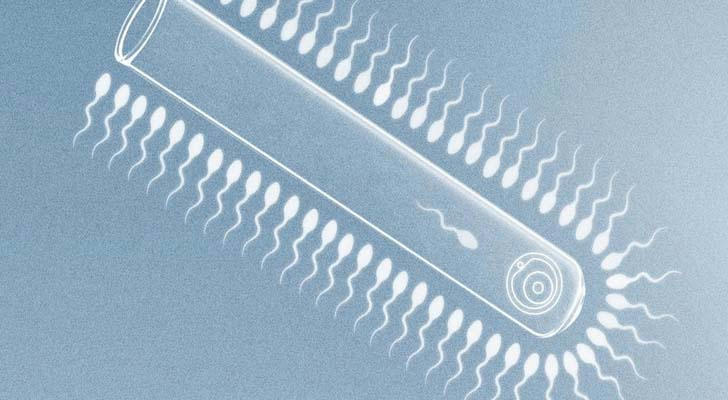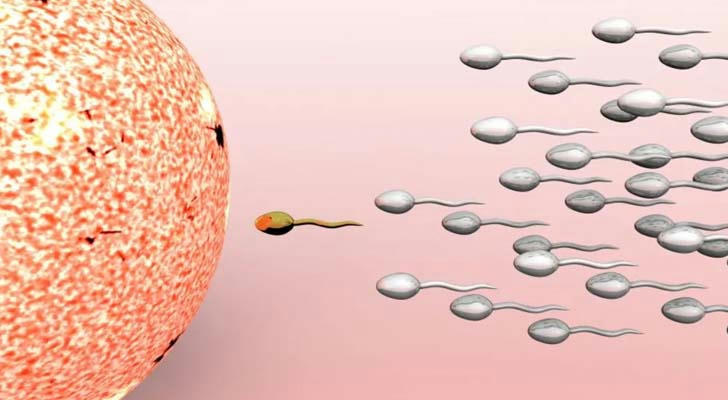How to Become a Sperm Donor: Requirements, Process, and Benefits
Sperm donation is a simple yet impactful way to help others achieve their dreams of parenthood. If you’re considering becoming a sperm donor but don’t know where to start, this article is for you. We’ll take you through everything you need to know—what’s required, how to apply, and what you’ll get out of it. With clear steps and actionable advice, this guide will make the process easier to understand and navigate.

Why Consider Becoming a Sperm Donor?
There are many reasons why someone might choose to donate sperm. For starters, you could help someone facing infertility issues or a same-sex couple who want to start a family. Additionally, sperm donation offers a chance to make extra money, and many donors find the experience personally rewarding. But before you take the leap, let’s make sure you’re prepared for the process.
Step 1: Understand the Basic Requirements
To become a sperm donor, there are certain requirements you’ll need to meet. While each sperm bank or fertility clinic may have slightly different rules, most will expect you to meet these basic criteria:
1. Age and Health Criteria
Age: Most sperm banks accept donors between the ages of 18 and 40. If you’re over 40, some clinics may still accept your donation, but they’ll likely have stricter health guidelines.
Physical Health: Donors should be in good general health. If you have any chronic conditions (e.g., diabetes, high blood pressure), it could disqualify you from donating. A full physical exam will be required to confirm your eligibility.
Lifestyle: Healthy lifestyle choices matter. Sperm banks prefer donors who don’t smoke, drink excessively, or use drugs. Maintaining a balanced diet and staying active is a plus.
2. Genetic and Medical Screening
You’ll need to undergo genetic testing to rule out any inherited diseases. Some sperm banks may even ask for additional family health history.
Sexually transmitted infection (STI) testing is mandatory to ensure you’re not transmitting any diseases. Be prepared for this as part of the initial screening.
3. Mental and Emotional Readiness
- Some sperm banks may require a psychological evaluation to ensure you’re comfortable with the idea of donating sperm and understand the emotional implications. This is important because while you won’t have parental rights, knowing that a child could be born from your donation can be a big deal.

Step 2: Research Sperm Banks and Clinics
Once you meet the basic criteria, the next step is choosing a sperm bank or fertility clinic. Here’s what you should consider:
1. Location and Reputation
Proximity: Find a sperm bank or fertility clinic near you, as you’ll need to visit them for screening and donations.
Reputation: Look for well-established sperm banks with positive reviews. A reputable clinic will ensure your donation is handled ethically and legally, and they will also help protect your privacy.
2. Compensation and Donation Frequency
Sperm banks usually compensate donors for their time. The amount varies, but expect to earn around $50 to $100 per donation. Some sperm banks may pay more for specific needs or higher sperm quality.
Donation Frequency: Most sperm banks require donors to make multiple donations over a period of time, usually several months. This helps build up a sperm bank for clients who need it.
3. Anonymous vs. Known Donation
Anonymous Donation: With this option, your identity is kept confidential, and you won’t have any contact with the families who use your sperm.
Known Donation: Some clinics offer known donation options, where the child can contact you once they reach adulthood (usually age 18). If this is something you’re comfortable with, it’s important to discuss it with the clinic upfront.
Step 3: Complete the Screening Process
Once you've chosen a sperm bank or clinic, it’s time to go through the screening process. Here’s what to expect:
1. Application and Health Forms
- You’ll fill out a comprehensive application form detailing your medical history, lifestyle habits, and family health background. The sperm bank may also ask for a personal photo and some information about your education and career.
2. Physical Examination
- A doctor will conduct a thorough physical exam to assess your overall health. They’ll check for any physical abnormalities that might affect your ability to donate healthy sperm.
3. Genetic and STI Testing
Expect to undergo genetic testing to screen for inherited conditions. Sperm banks look for potential genetic issues that could be passed on to any child conceived from your donation.
You’ll also be tested for STIs like HIV, chlamydia, and gonorrhea to make sure your sperm is disease-free.
4. Semen Analysis
- This is a key part of the screening process. Your sperm will be tested for quality—this includes sperm count, motility (how well the sperm moves), and morphology (shape of the sperm). High-quality sperm is essential for successful fertilization, so this analysis helps ensure your sperm meets the necessary standards.
Step 4: Making Your First Donation
Once you’ve passed all the tests, you’ll be ready to donate. Here’s what you need to know about the donation process:
1. Donation Setting
- Most sperm banks provide a private room where you’ll collect your sample via masturbation. This might feel a little awkward at first, but it’s a standard process, and the staff is professional and discrete.
2. Sample Collection
- After collection, the sperm will be processed and frozen for later use. Some sperm banks may also ask you to donate multiple times to ensure they have enough viable sperm.
3. Compensation
- After each donation, you’ll be compensated for your time. Payments are usually made per donation and can be collected either after each visit or at the end of the month, depending on the sperm bank’s policy.

Step 5: Ongoing Commitment
After your first donation, there may be an ongoing commitment. Many sperm banks ask donors to continue making donations over several months. Here’s what you should consider:
1. Regular Donations
- Expect to return to the clinic for additional donations. Some sperm banks require a set number of donations (e.g., 6-10) to build up their stock.
2. Health Monitoring
- Periodic health checks may be required to ensure your sperm quality remains high. You may also need to repeat STI tests throughout the donation period.
3. Re-evaluation
Sperm banks may re-evaluate your sperm after a certain number of donations to check if it meets their quality standards. If your sperm quality drops, you might be disqualified from donating further.
Step 6: Enjoy the Benefits
While sperm donation is primarily about helping others, there are benefits for you too. Here’s what you can expect:
1. Financial Compensation
- Donors are compensated for their time, and the amount can vary based on the sperm bank. For example, some sperm banks pay around $50-$100 per donation, while others may offer higher rates for special cases (e.g., donors with certain educational backgrounds or physical attributes).
2. Personal Satisfaction
- The biggest benefit of becoming a sperm donor is knowing you are helping people who are struggling with infertility. Many donors find the experience fulfilling, especially when they learn that their donation has helped create a family.
3. No Parental Responsibility
- Once you donate sperm, you have no legal or financial responsibility for any child born from the donation. You’ll sign an agreement that waives parental rights, ensuring that your role is strictly as a donor.

Real-Life Example: Mark’s Journey as a Sperm Donor
Mark, a 35-year-old man from Ohio, decided to become a sperm donor after learning about the process from a friend. Mark was healthy, educated, and felt he could make a difference in people’s lives.
He researched local sperm banks and chose one with a good reputation. After completing the screening process—which included a physical, genetic testing, and semen analysis—Mark started making donations. Over the course of a year, he donated several times and earned enough to help pay off some of his student loans.
Mark found the process rewarding, knowing that his donations helped several couples who had struggled with infertility. He never met the families, but he was content knowing he had played a part in creating new families.
Conclusion: Is Sperm Donation Right for You?
Becoming a sperm donor is a straightforward process that can make a meaningful impact. It offers a way to help others while earning extra money and contributing to the growth of families. If you meet the health requirements and are comfortable with the process, it could be a great option for you.
Now that you have a step-by-step guide, it’s time to take action! Research local sperm banks, understand the requirements, and prepare for the screening process. If you’re ready to help others and earn some money while doing so, becoming a sperm donor could be a rewarding experience.
